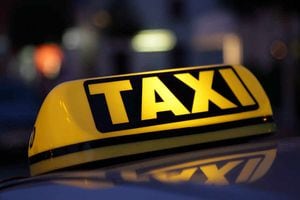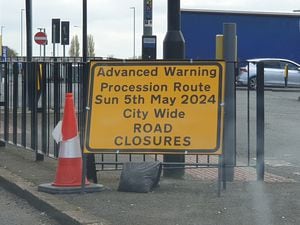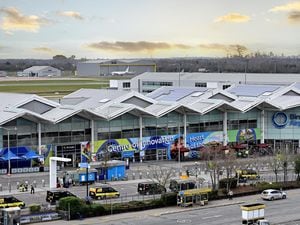Taxi drivers are hit by ‘21st century slavery’ in Uber row over fares
Taxi drivers fighting deregulation legislation which has seen their income plummet have described their working conditions as '21st century slavery.'

The Wolverhampton Private Hire Drivers Association (WPHDA), which also represents drivers from Walsall, Sandwell and Dudley, claim they have had to drastically drop prices to hold on to customers in the face of increasing competition from rival firms.
Fares between Wolverhampton to Birmingham had fallen by a quarter - from £25 to around £17- £18 following the arrival of taxi-hailing firms such as Uber on the scene, they claim.
Ebrahim Suleman, WPHDA chairman, said drivers were effectively earning £3.50 an hour after taking out expenses. "I may as well pack up and work in a factory, or Sainsbury's - at least then I will get the minimum wage.
"This is 21st century slavery. We have bills to pay and families to look after like everyone else."
He warned that Black Country private hire drivers would liaise with colleagues in Manchester and London to 'put the pressure on' politicians at both local and national level.
At a meeting last week they urged Wolverhampton's three Labour MPs Emma Reynolds, Pat McFadden and Eleanor Smith to lobby Parliament on their behalf.
Many members and elders of the local Muslim community also attended the meeting to given their support. One said Uber was 'killing the taxi industry all over the country.'
The move was the latest action by WPHDA which in October brought the city to a near standstill with a 'go slow' by around 200 drivers, causing delays for motorists in evening rush-hour traffic.
They were highlighting what the association sees as lenient tests for new taxi drivers and too many licences being given out by the Wolverhampton Council, which has taken advantage of new government deregulation allowing drivers to shop around for their licences.
The council is planning to reduce the cost of a taxi licence by between 12–15 per cent. Councillor Bolshaw, licensing chairman, has said the authority simply acted quicker than its neighbours to ditch red tape that was holding up the service.
The WPHDA also launched a petition, signed by 800 people, to reintroduce harder tests which they said was in the interests of public safety, to raise standards and raise the profile of the trade.
The association, which also has members in the wider West Midlands, in Solihull and Coventry, is campaigning on a number of fronts, including cross-border hiring and holiday and sickness pay rights.
Last Tuesday thousands of Spanish taxis went on strike in Madrid and Barcelona to protest against ride-hailing companies such as US company Uber and Spanish-owned Cabify.
Uber does not employ drivers or own vehicles, instead relying on private contractors with their own cars, allowing them to run their own businesses. Critics say this allows it to dodge costly regulations such as stringent licensing requirements for taxi drivers, who undergo hundreds of hours of training.





